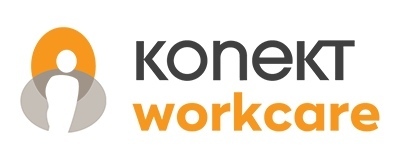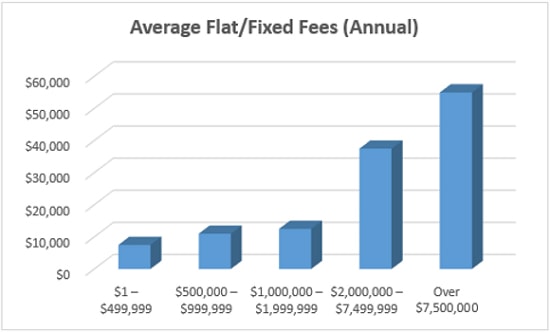
If you're interested in becoming an environmental consultant in Utah, you'll need to obtain a UST Consultant License. This article will discuss the requirements, average salary, and career options for people who are interested in working in this field. It also discusses the various types of environmental consulting jobs that Utah has to offer.
UST Consultant License is required for environmental consulting in Utah
The Department of Environmental Quality must license you to work as an environmental consultant in Utah. If you intend to take soil or groundwater samples from an underground storage tank, you will need a UST Consultant License. You can provide soil and groundwater samples to demonstrate contamination and their impact and help clients achieve site closure. Your certification can also be used to identify the presence and potential dangers of lead paint or asbestos.
Several certification programs have been created by the EPA to help individuals and organizations better understand their responsibilities in the field of environmental consulting. These programs assist in identifying and mitigating environmental risks, while also ensuring compliance to current laws and regulations. The public's safety and health is also a priority for environmental consultants. The Institute of Indoor Sciences offers an introduction training course that could lead to certification. In order to become certified, you will have to submit an application along with a payment.

Average salary of environmental consultants
The average annual salary for an environmental consultant in Utah is $62,245 Salaries will vary depending on experience, education, and employer. A bachelor's degree for most positions in this area is the minimum requirement. ERI's salary data is based upon survey results and cost-of-living factors such as gas prices, effective tax rates and actual sales data.
An Environmental Consultant's salary is influenced by their experience. A consultant with more experience is likely to earn a higher salary. Location can also impact the salary. Large metropolitan areas generally have higher salaries, but they also tend to have a higher cost of living.
There are some positions that pay more than others. For example, a senior environmental consultant can make $107,817 annually, while an entry-level environmental consultant can earn as little as $35,000. Although entry-level roles are quite common, they typically do not come with a high starting salary.
Opportunities for environmental consulting careers
Utah has many options for environmental consulting jobs. While these jobs are similar, each position has its own salary range. Typically, an environmental consultant makes around $68,160 per year. Salary levels can vary, depending on the educational background and industry. For more detailed information, you can check out the Professional Salary Report.

Many professionals in their early years are keen to use their education for a career as environmental consultants. They love the challenge of working on different projects and learning new skills. They love working in teams that require different skill sets. They enjoy complicated spreadsheets and won't be afraid to ask for assistance when they need it. They work well together, are good at writing, and can manage their time efficiently.
Utah's Environmental Consultants might choose to work at a national company committed to environmental and social responsibility. This company offers a wide variety of career opportunities and is an equal opportunity employer. Its employees are involved on many different projects, such as environmental monitoring, air quality permits, pipeline compliance, and ecological risks assessments.
FAQ
Is it possible to run a consultancy business from home?
Absolutely! This is something that many consultants do already.
Working remotely is a common way for freelancers to work. They use tools like Skype, Trello (Slack), Trello, Basecamp and Dropbox. So they don't miss company perks, freelancers often make their own office space.
Some freelancers prefer to work at libraries and cafes instead of traditional offices.
Others prefer to work from home as they feel more at home with their families.
Working from home comes with its own pros and cons. But if you love your job, it's definitely worth considering.
Do I really need legal advice?
Yes! Yes. Consultants can often create contracts with clients, without seeking legal advice. However, this can lead to problems down the road. What happens if a client terminates the agreement after the consultant's completion deadline? Or, what happens if the consultant doesn't meet the deadlines set forth in the contract?
To avoid any problems, it's best that you consult a lawyer.
What can I expect from my consultant?
Once you select your consultant, you should expect to hear back from them within a few days. They will often ask about your company's mission, goals and products. After that, they will send you a proposal detailing the scope of work, expected time frame, fees and deliverables.
If everything goes as planned, then both parties will agree to a written contractual agreement. The type of relationship between the parties (e.g., employee-employer, independent contractor-employer) will affect the terms of any contract.
If everything goes as planned, the consultant may begin to work immediately. S/he will have access to your internal documents and resources, and you'll have access to his/her skills and knowledge.
But don't assume that anyone who is a consultant has all the answers. To become an expert in any field you consult, it takes practice and effort. You shouldn't expect your consultant will know everything you need to know about your business.
Are you a qualified consultant?
Studying a subject deeply and then applying your knowledge is the best way for you to become an expert.
You can learn all you need to know to become a great consulting professional by starting to study now.
You may not be able to get hired if you don't have relevant experience but a degree. But, if your qualifications are comparable to those who have been hired, you might still be eligible to apply.
But remember, employers will always look for candidates with real-world expertise.
Statistics
- Over 50% of consultants get their first consulting client through a referral from their network. (consultingsuccess.com)
- "From there, I told them my rates were going up 25%, this is the new hourly rate, and every single one of them said 'done, fine.' (nerdwallet.com)
- On average, your program increases the sales team's performance by 33%. (consultingsuccess.com)
- According to statistics from the ONS, the UK has around 300,000 consultants, of which around 63,000 professionals work as management consultants. (consultancy.uk)
- Over 62% of consultants were dissatisfied with their former jobs before starting their consulting business. (consultingsuccess.com)
External Links
How To
How can I find a good consultant for my business?
Finding a great consultant starts with understanding your expectations. Do you want them helping you improve your website's performance or not? You may want them optimizing your site to rank higher for search engines. Or perhaps you just want someone who can tell if there are any issues with your current hosting provider. You should know the type of services that you require before you start looking at other companies. Many consultants claim to be able to provide these services. However, only a handful of them actually deliver on their promises. How can you pick the right one? Here are some considerations when choosing a consultant.
-
Ask for referrals. This is probably the best way to choose a consultant. Because you are likely to pay too much, you shouldn't hire someone who you have never heard of. You don't want to work alongside someone whose reputation hasn't been established. If you're lucky enough to get referrals from people you trust, then great! You can check online reviews even if they don't refer you. Find testimonials and case study examples from customers who have used your product.
-
Ask around. Many people don’t know that they could gain from consulting. They assume that their current situation is fine and they don’t need changes. This is often not true. Even if you are seeing great results, it is likely that you have not been keeping up to date with technology and trends. Your business could be missing out if it relies on outdated methods. Ask around to find a qualified consultant.
-
Be sure to check their credentials. You don't need to worry about whether they are building a website or an eCommerce store worth millions. Check that they are qualified to complete the tasks and have enough expertise in the chosen area.
-
Find out what kind of projects they specialize in. It is a common misconception that everyone can manage everything. Some areas require specific types of training or education. For example, if you need someone to build a WordPress theme, you won't want to hire a developer who specializes in Drupal. The same applies to programming languages, graphic design and other areas. Ask them what types of projects they are most familiar with.
-
Know what they charge. You don't want a consultant who charges too much. You don't necessarily want to pay too low, but you shouldn't either. Consultants come in all shapes and sizes. While some consultants charge an hourly rate, others bill per project. You will save money if you know exactly what you're going to pay upfront.
-
Learn what they offer. Are they available for free consultations Will they give you advice on how to set up your own system? Do they promise that your site will rank higher once you have worked with them? You have the right to cancel at any time if you aren't satisfied with what was said during your consultation.
-
You can also find out if they offer discounts on multiple months or over years. Many consultants offer discounted pricing over extended periods. You may not need to commit to a full year, but you may also take advantage of whatever deals they offer.